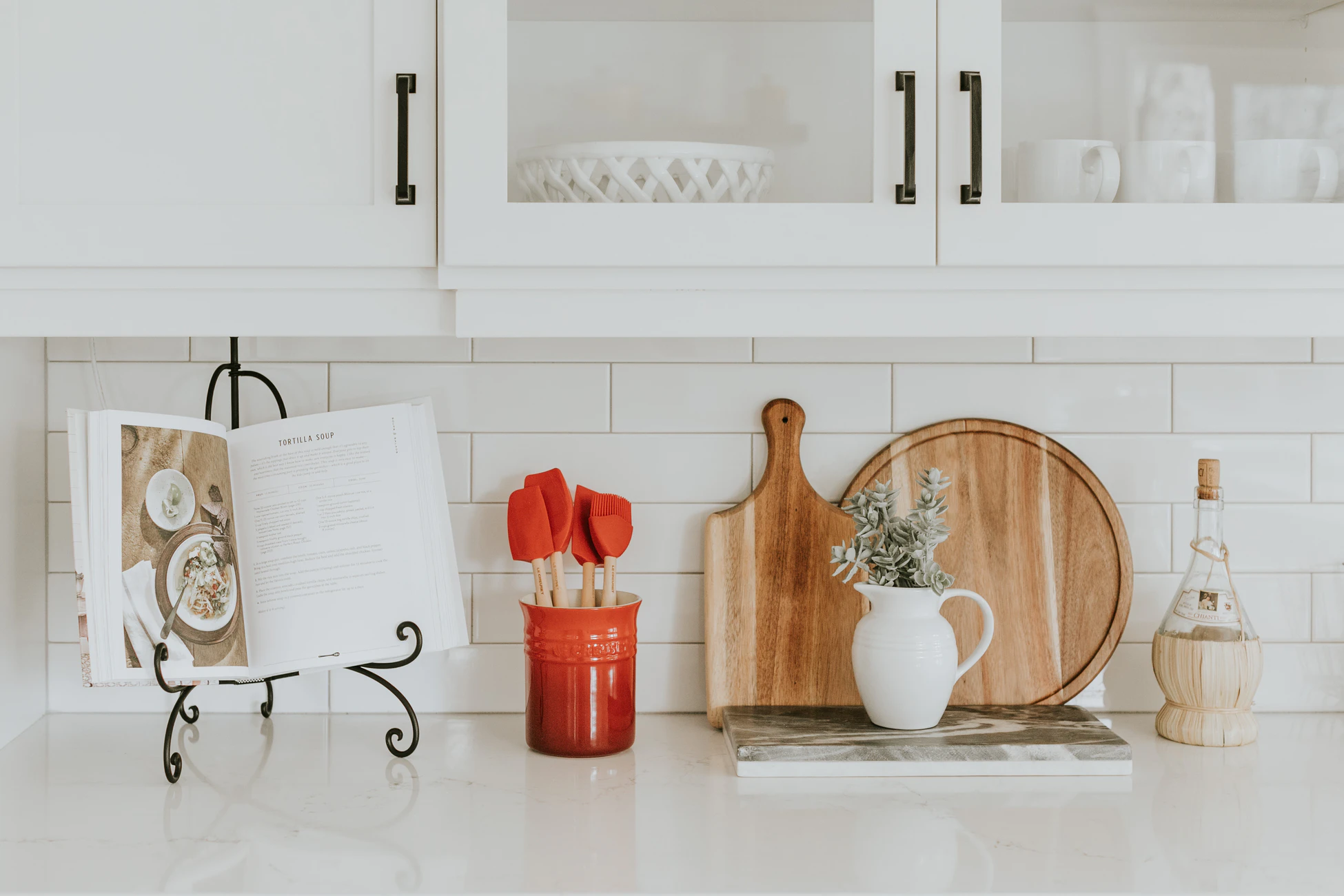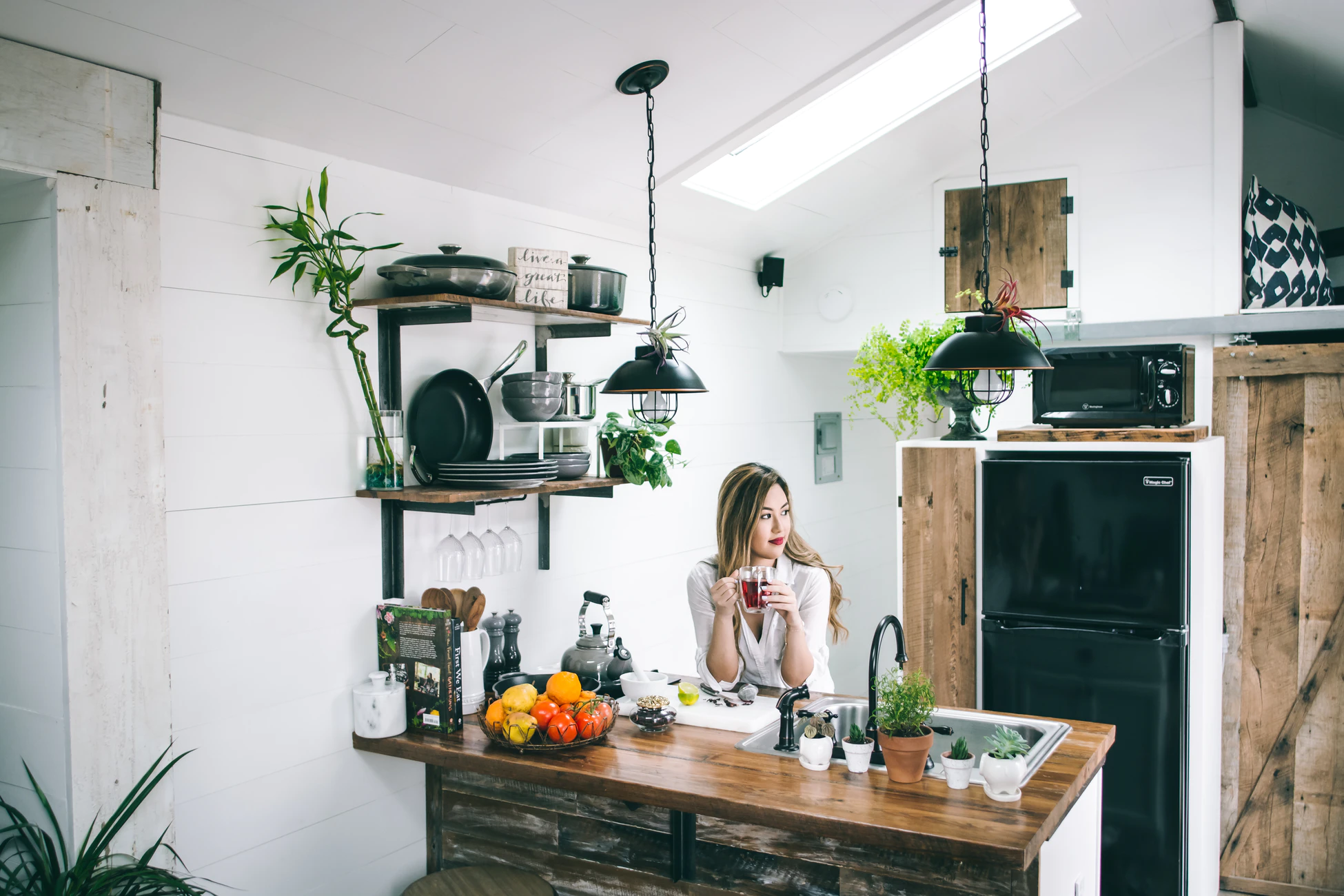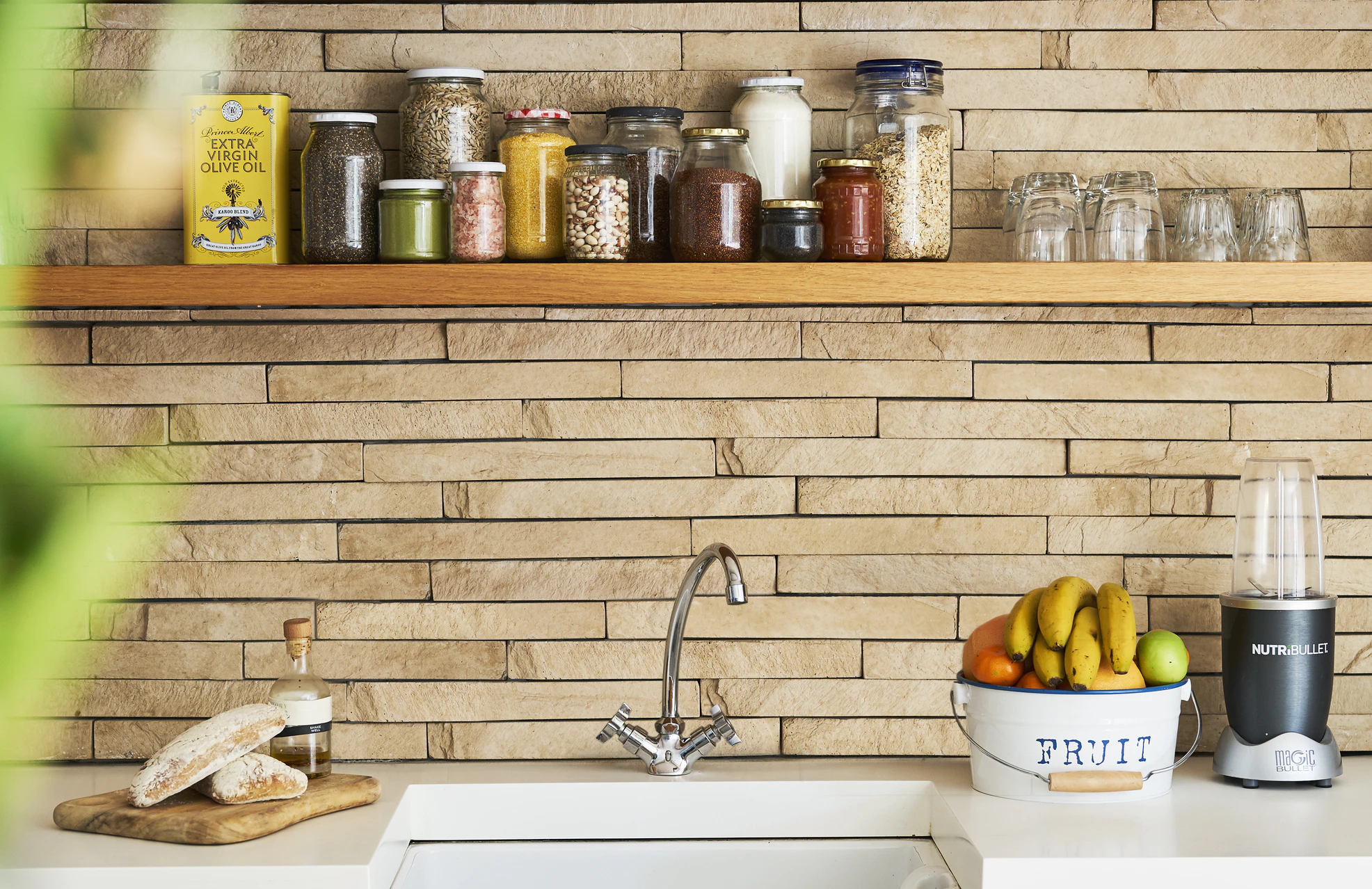Sign up to our newsletter!
No matter if you are moving, or improving, our newsletter is packed with the best tips, tricks and ideas to help you dwell well.
With the threats of climate change looming over us on a daily basis, we should all be prioritising ethically sourced, sustainable, and eco-friendly choices in all areas of our lives. And interior design is no exception.
It’s easy to make informed decisions around your dietary choices or cleaning products, with the help of labels declaring the item is ‘organic’ or featuring the fair trade logo or the cruelty-free leaping bunny. But when it comes to larger items such as kitchen units or appliances, you may have to dig a little deeper to be sure you’re buying something from a sustainable, ethical source.

One of the easiest ways to reduce your carbon footprint is to buy your new appliances or units from a local independent business. The shipping and distribution networks for large national corporations are huge, and the fuel they would need to use to bring you your item has a vast negative environmental impact. By buying from a local business, you’ll not only get a bespoke personal service and unique tailor-made kitchen, but you’re also supporting the economy at a grassroots level.

You may even find there are independent companies in your area who specialise in second-hand, repurposed, or upcycled units and appliances. Buying used units is always a great ethical choice as it reduces the need for fuel for excessive manufacturing as well as the amount of stuff ending up in landfill. You may worry that a second-hand kitchen wouldn’t be the beautiful addition you’d envisaged for your home, but with the right fixtures and design tweaks, it can be everything you wanted, and probably without the hefty price tag of buying new.
However, do be careful when buying second-hand appliances. Whilst it’s definitely the most ethical way to source them, it can have longer-lasting implications. Older appliances are typically going to be less energy efficient, so will be more detrimental to the environment in the long run. Check the energy rating label of any appliance before buying it to make sure you’re not going to end up using more energy than you think.
If a company uses sustainable and ethically sourced materials, the chances are they’re shouting about it. A little bit of research into their green practices will soon let you know if they’re ticking the boxes for industry standards. Make sure any wood they’re using is FSC-certified for sustainable forestry and uses non-chemical adhesives. You’ll also want to avoid anything using Volatile Organic Compounds (VOCs) in their paints and finishes, as these can cause air pollution in your home.
If you do decide to buy new, you’ll want to choose to work with a company that can tell you about the whole journey of their product, from sourcing the raw materials right through to delivering it to your door. Many people assume that eco-friendly options will be more expensive than the mass-produced commercial alternative, but this isn’t always the case. Mert Yashar at House of Worktops can testify to this, “We own and control our whole supply chain, which means we’re able to cut out the middleman and pass the savings on to the customer. It also means it’s easier for us to operate a zero-waste policy, so we can maintain our commitment to sustainable practice”. If you know the retailer’s whole process, you can spend your money safe in the knowledge that you’re supporting ecologically sustainable practice, and you’ll probably find that you save a few pennies as well.

We all know that plastic is bad for the environment, and mostly made in huge factories and shipped over from China, so it’s rarely an ethical choice. When designing your new kitchen, you also need to consider what you use it for. Plastic may be cheap and easy to clean, but you can’t beat the look of a matching set of stainless steel utensils hanging on your wall, alongside ceramic or glass storage jars. If you think about your storage solutions at the design phase, you can be sure to avoid the mismatched look that can develop over time.
Avoiding single-use items such as disposable cleaning cloths or cling film is also a more ecologically sound choice. Instead, choose washable cloths and reusable food wraps, and invest in a set that complements your kitchen’s aesthetic so they never look out of place.
Making informed choices about the ethical sourcing of your units and appliances is the first step towards achieving a more environmentally friendly kitchen in your home, and there’s no need to sacrifice style in the process. Once the units are in, you can swap out old plastic items or chemical cleaners, and gradually introduce more natural alternatives on your journey to a greener lifestyle.
As well as refreshing your kitchen with a brand new or new-to-you design, if you know you’ve done your research and made the best possible eco-friendly and sustainable choices, you can then simply relax and enjoy the new cosy space at the heart of your home.
Live well with Moving and Improving